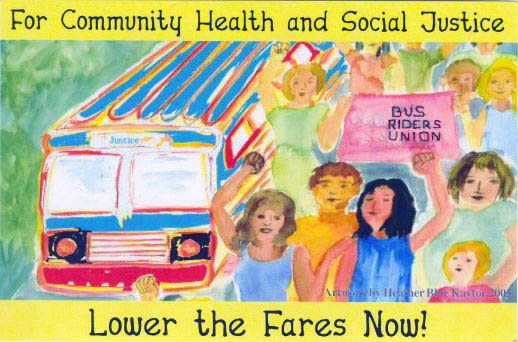 |
Despite Vancouver mayor Larry Campbell’s characterization of the Bus Riders Union as a group of “total losers,” the health and social justice struggle in which the BRU is engaged is a direct response to the targeting of our society’s most vulnerable citizens — parents, low-wage workers, the unemployed, refugees, students, children, seniors, people with disabilities and immigrants. A majority of bus riders are women and disproportionately Aboriginal and people of colour. Inevitably then, policies that negatively impact transit-dependent people are implicitly racist, sexist and unfair.
Higher fares and poor bus service act as a barrier to our independence and mobility, and as a result the health of our community suffers. Some bus riders are forced to choose between taking the bus and other basic necessities, such as food and rent. High fares force transit dependent people to work longer hours to pay for the rising cost, causing intense strain on their own health and the health of their families.
In Greater Vancouver, bus riders pay for 50% of Translink’s operating costs through fares, as well as paying through the Hydro levy and gas taxes. High transit fares are, in fact and in practice, a form of regressive taxation that takes more money from those who can least afford to pay.
What can you do to redress the wrong? Start of by visiting the Bus Riders’ Union website. E-mail them at